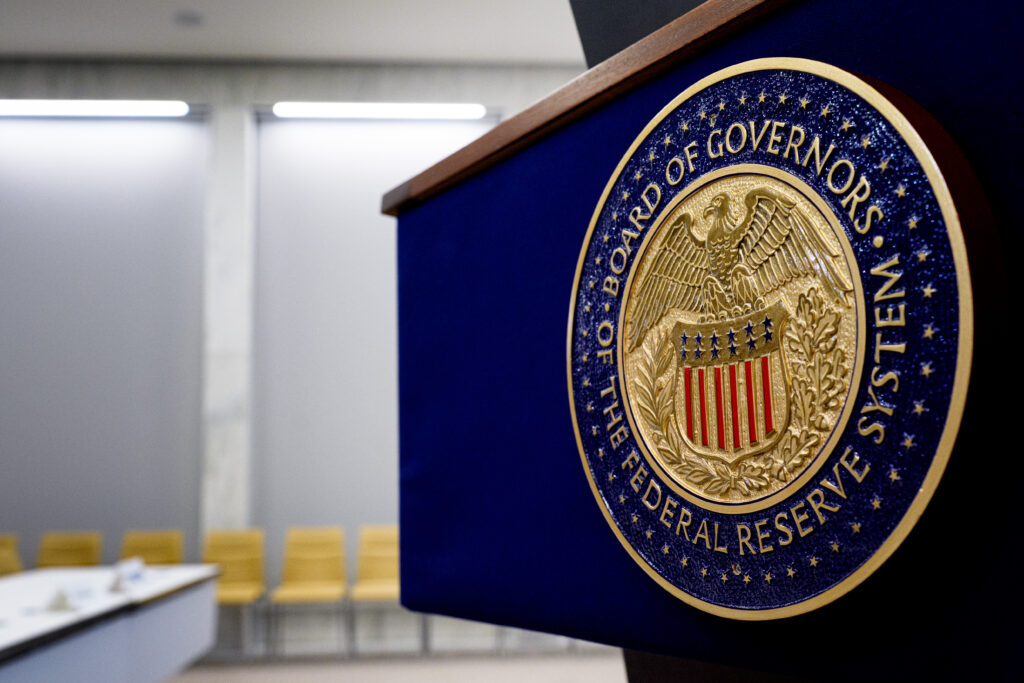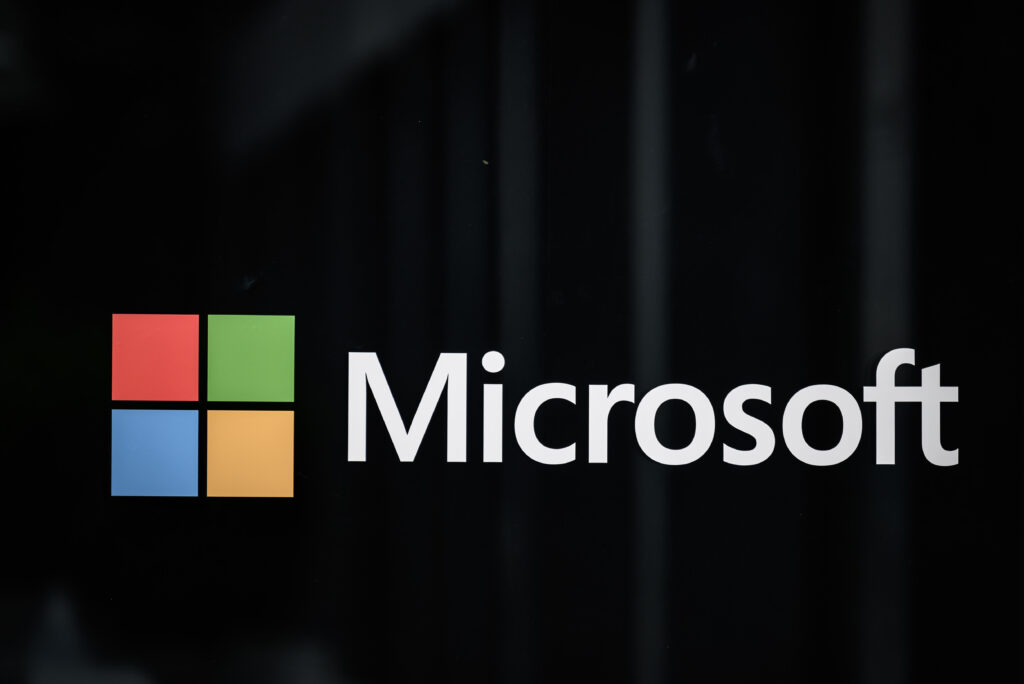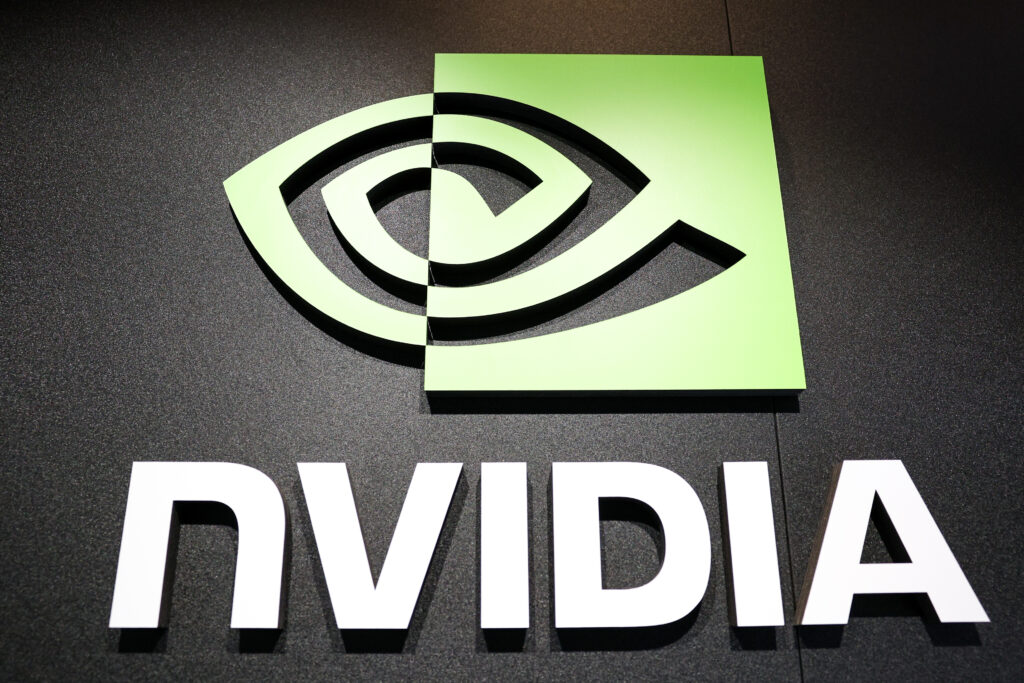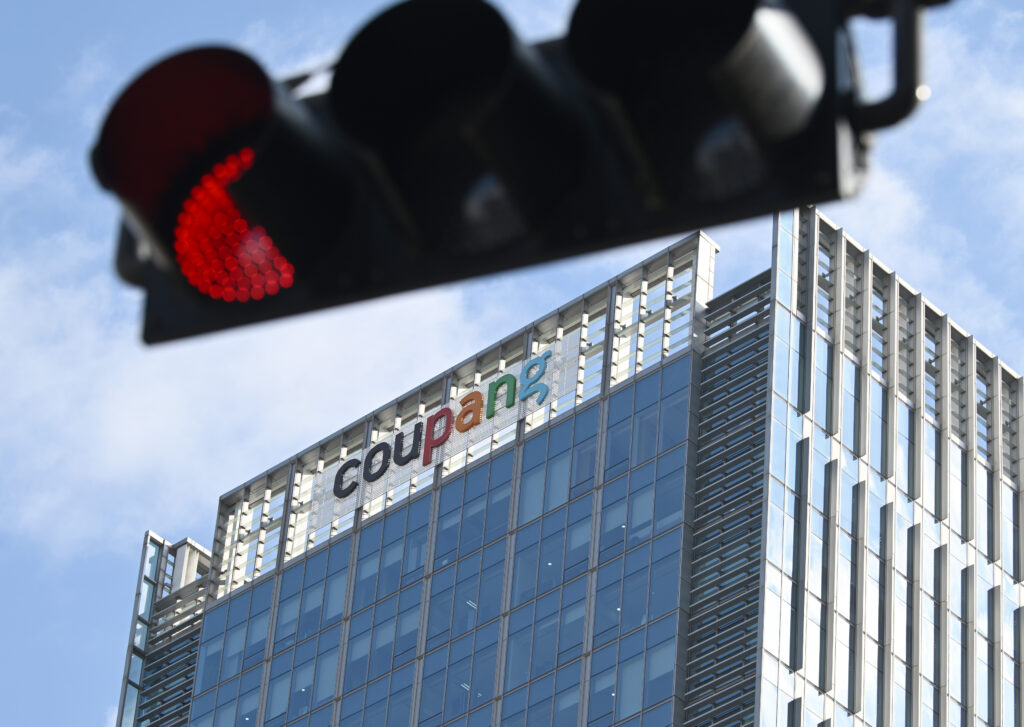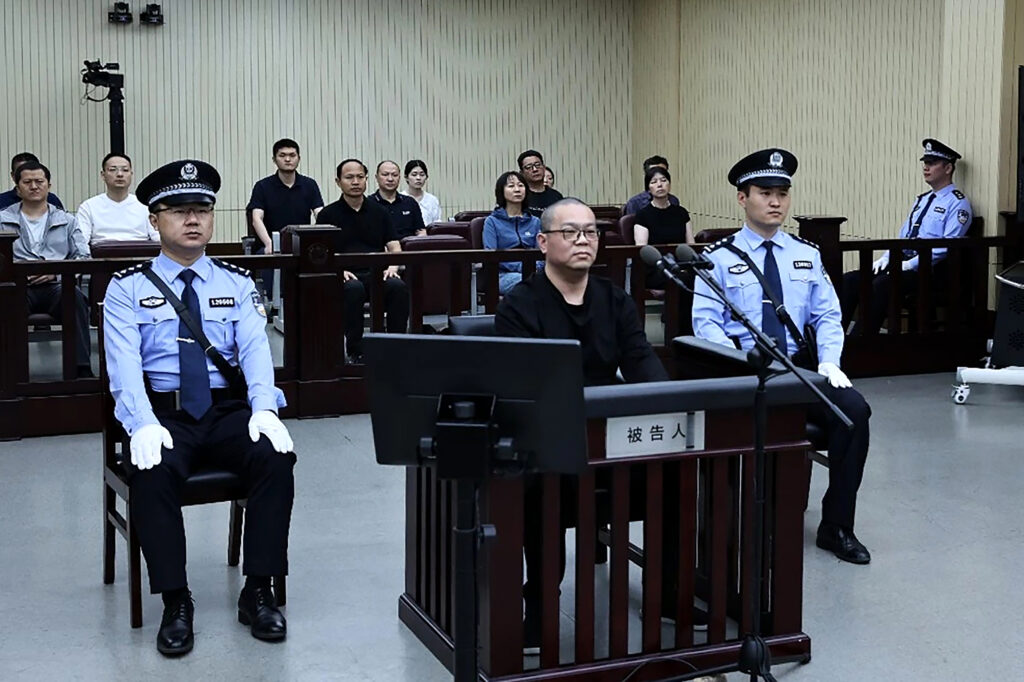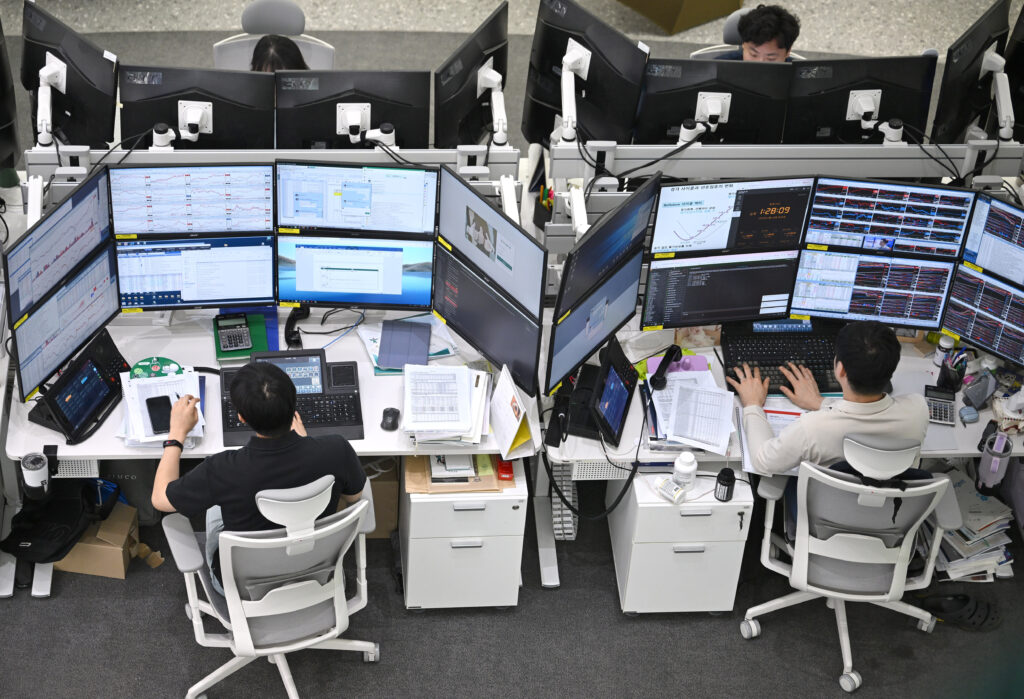Stock markets drift on eve of Fed rate call
Global stock markets traded mixed on Tuesday as markets avoided major swings while awaiting a Federal Reserve decision expected to shed light on US monetary policy next year.On Wall Street, the Dow began the day in positive territory but finished in the red while the Nasdaq opened negatively but ended the day higher.”It’s normal to see the market pause before a big day and consolidate the move,” said Adam Sarhan of 50 Park Investments. “The market’s in a wait-and-see approach.”Europe’s main markets were also mixed while Asia ended the day mostly lower.”The week so far has been indecisive at best, but early trading in the US has seen some tentative buying,” said Chris Beauchamp, chief market analyst at IG trading platform.With traders fully confident of a US rate reduction Wednesday, observers said they would be keeping a close eye on the central bank’s so-called “dot plot” of projections for monetary policy into 2026 that will also be released.”Previews have been teasing the likelihood of the Fed checking in with a ‘hawkish cut,’ which is to say it will cut rates by 25 basis points but then signal that it is unlikely to cut rates again soon,” said Briefing.com analyst Patrick O’Hare.Bets on a third successive cut — and more in 2026 — had surged on data pointing to a weakening jobs market, which offset concerns about stubbornly high inflation.However, the excitement has calmed in recent days following a slightly higher-than-expected US inflation reading.On the corporate front Tuesday, chipmakers traded mixed after Trump said he had reached an agreement with his Chinese counterpart Xi Jinping to allow Nvidia to export advanced artificial intelligence chips to China.Shares in Nvidia dipped 0.3 percent after having risen on Monday ahead of the announcement.The announcement marks a significant shift in US export policy for advanced AI chips, which Trump’s predecessor Joe Biden had heavily restricted over national security concerns.Biden’s administration required chip companies to create modified, less powerful versions specifically for the Chinese market.Investors also kept a close watch over the bidding war for Warner Bros. Discovery after Paramount on Monday launched an all-cash tender offer for the Hollywood giant, in a challenge to Netflix’s offer.On Tuesday, Warner Bros. Discovery continued to push higher, gaining 3.8 percent. Paramount Skydance advanced 0.5 percent while Netflix slipped 0.1 percent.JPMorgan Chase dropped 4.7 percent after executives from the banking giant signaled they anticipate 2026 expenses of $105 billion, more than expected.- Key figures at around 2115 GMT -New York – Dow: DOWN 0.4 percent at 47,560.29 (close)New York – S&P 500: DOWN 0.1 percent at 6,840.51 (close)New York – Nasdaq Composite: UP 0.1 percent at 23,576.49 (close)London – FTSE 100: FLAT at 9,642.01 (close) Paris – CAC 40: DOWN 0.7 percent at 8,052.51 (close)Frankfurt – DAX: UP 0.5 percent at 24,162.65 (close)Tokyo – Nikkei 225: UP 0.1 percent at 50,655.10 (close) Hong Kong – Hang Seng Index: DOWN 1.3 percent at 25,434.23 (close)Shanghai – Composite: DOWN 0.4 percent at 3,909.52 (close)Euro/dollar: DOWN at $1.1630 from $1.1637 Pound/dollar: DOWN at $1.3300 from $1.3322 on MondayDollar/yen: UP at 156.90 yen from 155.92 yenEuro/pound: UP at 87.43 pence from 87.35 penceBrent North Sea Crude: DOWN 0.9 percent at $61.94 per barrelWest Texas Intermediate: DOWN 1.1 percent at $58.25 per barrelburs-jmb/sla
